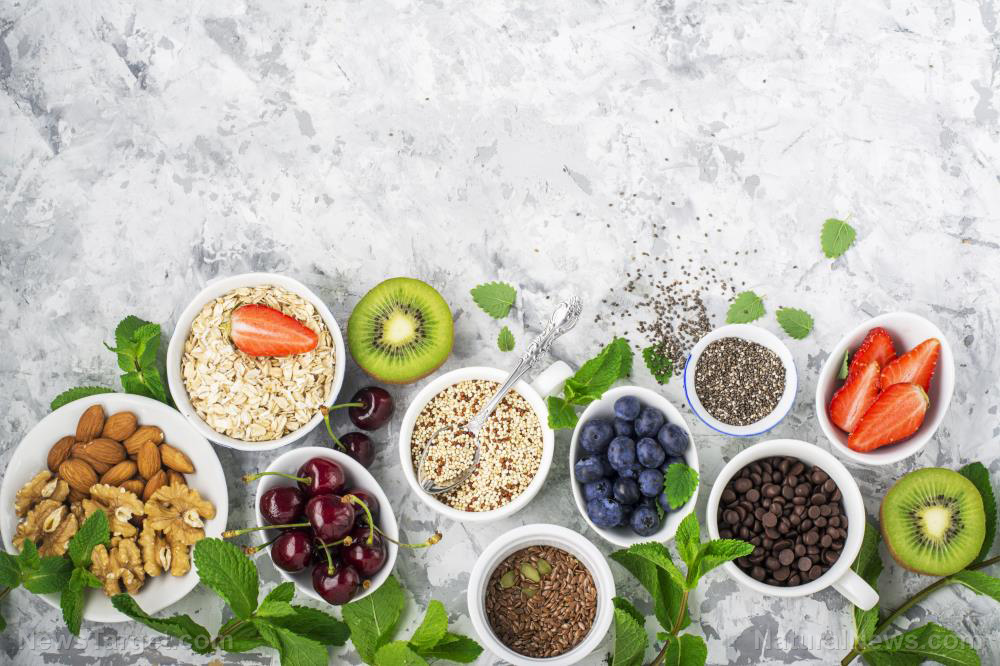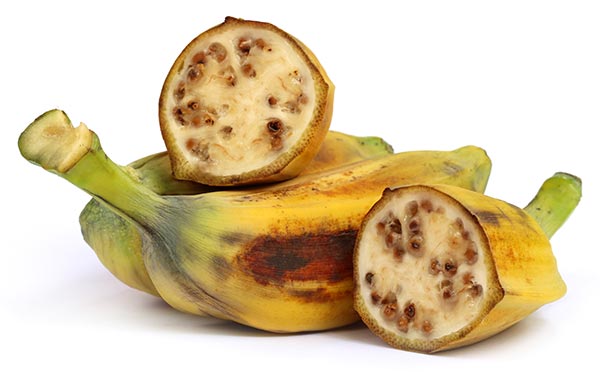Anthocyanins in fruits like blueberries can boost brain and heart health
07/28/2022 / By Belle Carter

A study published in Nutrients reported that anthocyanins, the blue or purple pigments in fruits such as blueberries, can help boost cognitive and cardiovascular health.
The authors of the study evaluated the benefits of anthocyanins on cardiovascular and neurodegenerative diseases. They concluded that water-soluble phytochemicals can help maintain cardiovascular and brain health by reducing oxidative stress in humans. Oxidative stress occurs when there is an imbalance of free radicals and antioxidants in the body, which plays a role in the aging process.
Normal activities such as exercise may increase the risk of oxidative stress. Free radicals created by less benign factors, including obesity, diets high in fat, sugar and processed foods, exposure to radiation, smoking cigarettes or other tobacco products, alcohol consumption, certain medications, pollution and exposure to pesticides or industrial chemicals, may also add to oxidative stress.
The study makes for a promising non-toxic and natural intervention that can help preserve cognitive function and delay the onset of neurodegenerative diseases. The said phytochemicals are a great alternative to pharmaceutical drugs that address Alzheimer’s disease and feature toxic side effects.
Recent reports said around six million Americans are currently living with Alzheimer’s disease, a progressive neurologic disorder that causes the brain to shrink and brain cells to die. Experts say that every five years after a person reaches the age of 65, the risk of this brain illness doubles. Around 14 million Americans are expected to be diagnosed with the disease by the year 2060.
Studies: Anthocyanins are life-prolonging phytonutrients
Over the years, the health benefits of anthocyanins have been widely looked into and the list goes on and on over time. In addition to the promising effects on people with Alzheimer’s, anthocyanins have already become a topic of interest as a natural preventive and therapeutic treatment for other neurodegenerative diseases. (Related: Berry good: Researchers discover lifespan-extending compound in blueberries.)
Scientists report that they have the ability to decrease pro-inflammatory chemicals in the brain and modulate cell signaling pathways. Evidence has also been found that anthocyanins may help inhibit acetylcholinesterase, a brain chemical that breaks down acetylcholine, a neurotransmitter needed for memory and learning.
A study published in the European Journal of Nutrition also revealed that older adults with mild to moderate dementia who drank anthocyanin-rich cherry juice daily showed improvements in memory and speech. Many natural health experts believe that blueberries and other bluish-purplish foods have the “right stuff” to help preserve cognitive function in old age and slow the onset of devastating neurodegenerative diseases.
The said antioxidant cay also help in preventing cardiovascular ailments.
The research team of the 2021 study noted that cyanidin 3, a natural organic compound and a particular type of anthocyanidin, helps to fight endothelial inflammation that can trigger heart disease. This compound safeguards the nitric oxide while appearing to make blood platelets less sticky. This allows for freer flow of circulation through arteries that would keep the blood vessels clear and healthy.
The team cited one placebo-controlled study where 150 participants with high cholesterol were given 320 milligrams per day of anthocyanins for 24 weeks. The respondents experienced reduced levels of C-reactive protein, an inflammatory enzyme linked to heart disease.
Meanwhile, another study published in Nutrition, Metabolic and Cardiovascular Diseases found that anthocyanins were shown to improve cholesterol levels. Moreover, Cleveland Clinic acknowledged that the unique compound can reduce cholesterol, lower blood pressure and decrease cardiovascular inflammation.
Most people get anthocyanins through blueberries and other berries, but they can also be obtained through grapes, black beans, blue or purple corn, cabbage, dark cherries, plums and eggplant skins.
Visit BrainHealthBoost.com for more news related to foods that can boost brain health.
Watch the below video that talks about how anthocyanins can treat insulin resistance and manage cholesterol.
This video is from the Groovy Bee channel on Brighteon.com.
More related stories:
Anthocyanins are a colorful way to prevent cardiovascular disease.
Research shows eating berries can help reduce inflammation and health risks caused by obesity.
Study: Cherries can help fight heart disease, diabetes and other inflammatory diseases.
Polyphenols in acai found to have a prebiotic effect that boosts digestive health.
Sources include:
Submit a correction >>
Tagged Under:
alternative medicine, Alzheimer's disease, anthocyanins, antioxidants, berries, Blueberries, brain health, cardiovascular disease, food is medicine, food science, heart health, natural medicine, neurodegenerative diseases, phytonutrients, prevention, research
This article may contain statements that reflect the opinion of the author
RECENT NEWS & ARTICLES
COPYRIGHT © 2017 FRUITS NEWS




















